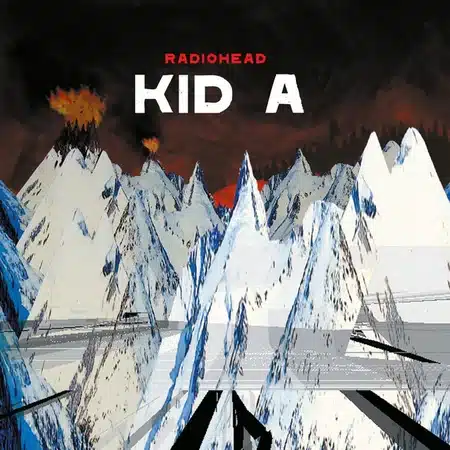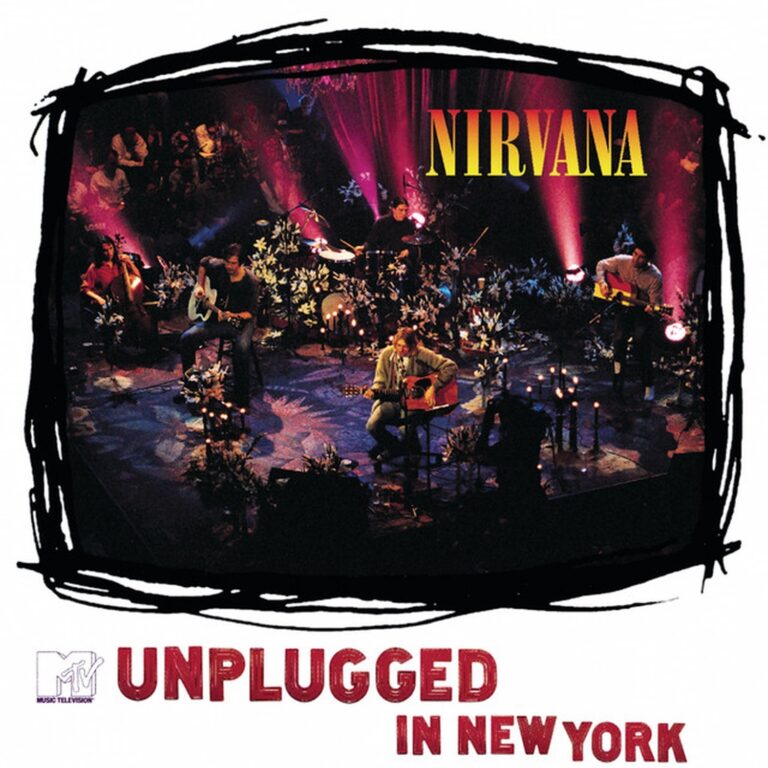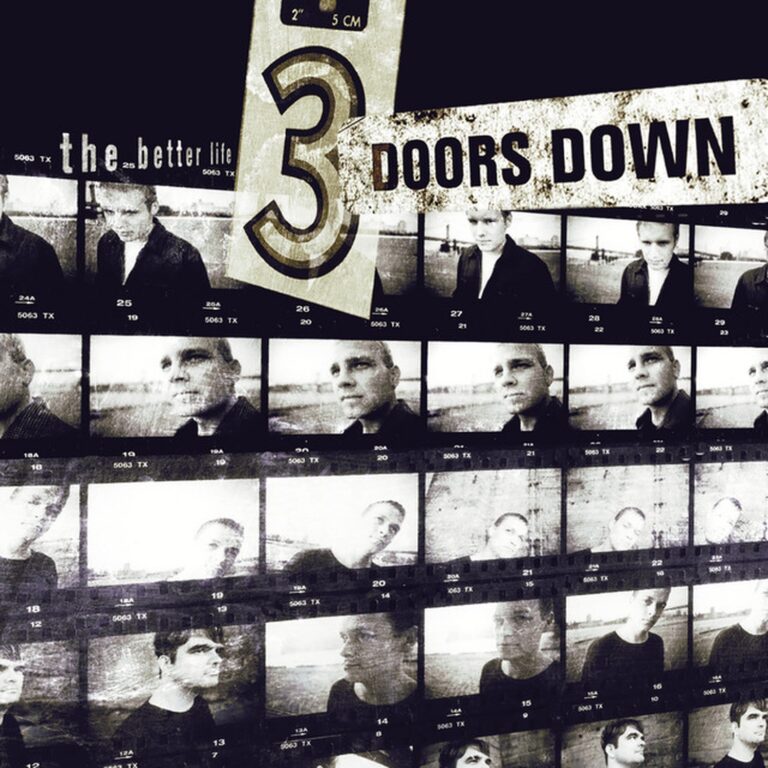
Radiohead’s “Kid A”: A Revolutionary Leap in Music
Radiohead’s Kid A stands as a landmark in music history, a testament to the band’s daring departure from the norm. Released on October 2, 2000, this album marked a significant shift in Radiohead’s sound, embracing electronic music and experimental rock. The impact of Kid A was profound, challenging listeners and influencing countless artists across genres. In this article, we will delve into the album’s creation, recording process, commercial performance, and lasting legacy.
| Attribute | Details |
|---|---|
| Release date | October 2, 2000 |
| Album title | Kid A |
| Genre | Experimental rock, post-rock, art rock, electronica |
| Total runtime | 49:56 |
| Number of tracks | 10 |
| Record label | Parlophone, Capitol |
| Recording studio | Guillaume Tell (Paris), Medley (Copenhagen), Radiohead studio (Oxfordshire) |
| Producer(s) | Nigel Godrich, Radiohead |
Reflecting on its release, Kid A was both a commercial success and a critical darling. It debuted at number one on the UK Albums Chart and the US Billboard 200, an impressive feat for an album with no singles. Thom Yorke once said, “I wanted to make a record that was the exact opposite of what everyone expected.” This ambition resonated, as the album has since been hailed as one of the greatest of all time. Let’s explore the genesis of this groundbreaking work.
The Genesis of “Kid A”
To understand the creation of Kid A, we must first consider the environment from which it emerged. In the late 1990s, Radiohead was at the peak of their powers following the success of OK Computer. However, the pressures of fame and an exhaustive tour schedule left the band, especially Thom Yorke, feeling disillusioned with traditional rock music.
Radiohead’s previous works, such as The Bends, laid the groundwork for their experimental turn. As Yorke struggled with writer’s block, the band sought inspiration from electronic music, jazz, and krautrock. This shift was not just about changing sound but redefining their creative process.
The main creative contributors to Kid A were Radiohead’s core members: Thom Yorke, Jonny Greenwood, Colin Greenwood, Ed O’Brien, and Philip Selway. Their collaboration with producer Nigel Godrich was pivotal. Together, they ventured into uncharted musical territories, embracing synthesizers and unconventional song structures.
| Band Member | Instrument/Role |
|---|---|
| Thom Yorke | Vocals, guitar, piano, keyboards |
| Jonny Greenwood | Guitar, keyboards, other instruments |
| Colin Greenwood | Bass |
| Ed O’Brien | Guitar, backing vocals |
| Philip Selway | Drums, percussion |
The album’s title, Kid A, was chosen for its non-specificity, originating from a filename on Yorke’s sequencer. The artwork, created by Yorke and Stanley Donwood, features a mountain range, symbolising themes of environmental concern and urgency. With a budget supported by their record label, Radiohead navigated financial challenges to produce an album that would redefine their legacy.
Recording Process
The recording of Kid A was as experimental as its sound. Spanning from January 1999 to April 2000, the sessions took place in various studios, including a converted barn in Oxfordshire. Radiohead’s commitment to innovation was evident as they experimented with new instruments and recording techniques.
Nigel Godrich, the producer, played a crucial role in shaping the album’s sound. His previous work with Radiohead on OK Computer had already established a successful partnership. For Kid A, Godrich pushed the band to explore modular synthesizers and the ondes Martenot, creating an otherworldly sonic landscape.
Interestingly, the recording sessions were marked by a mix of creativity and conflict. Adapting to Yorke’s electronic vision proved challenging for the band. Yet, these tensions birthed a masterpiece that continues to captivate listeners. Let’s take a closer look at the equipment likely used during these sessions:
| Equipment | Details |
|---|---|
| Synthesizers | Prophet 5, RS8000, Ondes Martenot |
| Drum Machines | Roland MC-505, TR-808 |
| Pianos | Mark I Rhodes |
| Effects | Various delay and modulation effects |
Throughout the process, the band faced challenges in aligning their vision with Yorke’s new direction. Nonetheless, the resulting album was a triumph. Godrich’s influence extended beyond Kid A, as he also produced several other acclaimed albums:
| Producer | Artist | Album | Year |
|---|---|---|---|
| Nigel Godrich | Radiohead | OK Computer | 1997 |
| Nigel Godrich | Beck | Mutations | 1998 |
| Nigel Godrich | Paul McCartney | Chaos and Creation in the Backyard | 2005 |
Commercial Performance and Reception
Upon its release, Kid A was met with both intrigue and scepticism. Its commercial success was undeniable, debuting at number one on the UK Albums Chart and the US Billboard 200. The album sold over 207,000 copies in its first week in the US alone, a remarkable achievement given its experimental nature.
Radiohead’s discography is rich with critically acclaimed works. Below is a table showcasing their studio albums and the respective years of release:
| Album | Year | Sales Data |
|---|---|---|
| Pablo Honey | 1993 | 553,000 |
| The Bends | 1995 | 1,060,000 |
| OK Computer | 1997 | 1,300,000 |
| Kid A | 2000 | 2,600,000 |
| Amnesiac | 2001 | 279,000 |
| Hail to the Thief | 2003 | 329,000 |
| In Rainbows | 2007 | 1,200,000 |
| The King of Limbs | 2011 | Unknown |
| A Moon Shaped Pool | 2016 | Unknown |
Kid A received numerous accolades, including a Grammy Award for Best Alternative Album. It has been celebrated as a defining moment in music, influencing a new generation of artists. During the year 2000, several other noteworthy albums were released, including:
- Hybrid Theory by Linkin Park
- Mer de Noms by A Perfect Circle
- Brave New World by Iron Maiden
- White Pony by Deftones
- Chocolate Starfish and the Hot Dog Flavored Water by Limp Bizkit
In 2000, heavy music saw significant developments, with bands like Linkin Park and A Perfect Circle gaining prominence. This era marked a shift towards more diverse and experimental sounds within the genre.
Track Analysis
The singles from Kid A were unconventional, as the band opted not to release any traditional singles. However, the tracks themselves carried immense weight, with songs like “Everything In Its Right Place” and “Idioteque” becoming iconic. Below is a table detailing the tracks on the album:
| Track Name | Length | Writing Credit |
|---|---|---|
| Everything In Its Right Place | 4:11 | Radiohead |
| Kid A | 4:44 | Radiohead |
| The National Anthem | 5:51 | Radiohead |
| How to Disappear Completely | 5:56 | Radiohead |
| Treefingers | 3:42 | Radiohead |
| Optimistic* | 5:15 | Radiohead |
| In Limbo | 3:31 | Radiohead |
| Idioteque | 5:09 | Radiohead |
| Morning Bell | 4:35 | Radiohead |
| Motion Picture Soundtrack | 7:01 | Radiohead |
Note: “Optimistic” was a single from the album. Despite the lack of traditional chart data, it remains a fan favourite.
Song Meaning and Lyrics
Delving into the lyrics of Kid A, we find a rich tapestry of themes and emotions. “Optimistic,” for instance, reflects on societal pressures and the struggle for personal authenticity. The refrain “If you try the best you can, the best you can is good enough” offers a message of resilience amidst adversity.
Yorke’s abstract lyrics serve as a mirror to the fractured state of modern life. The album’s exploration of alienation and existential dread is both haunting and beautiful. As Radiohead crafted these songs, they drew from a diverse range of influences, including electronic pioneers and jazz legends.
The collaborative spirit of the band shines through in the songwriting process. Each member contributed to the unique soundscape, blending traditional instruments with electronic elements to create something truly groundbreaking.
Touring and Promotion of Kid A
The promotion of Kid A was as unconventional as the album itself. Radiohead eschewed traditional marketing strategies, opting instead for innovative approaches such as online streams and animated “blips” as music videos. This decision reflected their desire to let the music speak for itself.
The tour supporting Kid A was a global affair, with Radiohead performing 33 shows across Europe and North America. Notable performances included their set at the Roseland Ballroom in New York, where they played tracks like “Pyramid Song” and “Idioteque.”
During the 2000 tour, Radiohead shared the stage with various artists, enhancing the concert experience for fans. Their live performances were characterised by a mix of old favourites and new material, captivating audiences worldwide.
Influences and Legacy
Radiohead’s Kid A was shaped by a myriad of influences, from electronic acts like Aphex Twin to jazz greats such as Charles Mingus. This eclectic mix informed the album’s sound, pushing the boundaries of what was expected from a rock band.
Many artists have since cited Kid A as a major influence on their work. The album’s legacy is evident in the experimental approaches adopted by bands across genres. Below is a table illustrating these influences and the artists inspired by Kid A:
| Influences on “Kid A” | Artists Influenced by “Kid A” |
|---|---|
| Aphex Twin | Arcade Fire |
| Charles Mingus | Bon Iver |
| Kraftwerk | Coldplay |
| Miles Davis | The National |
Released in 2000, Kid A coincided with significant global events, including the rise of digital music distribution. This shift marked a new era in the music industry, with Radiohead at the forefront of innovation.
Five Things about Kid A
Kid A is a treasure trove of fascinating facts. Here are five key insights into this remarkable album:
| Fact | Details |
|---|---|
| Recording Locations | The album was recorded in various studios, including a converted barn in Oxfordshire. |
| No Singles | Radiohead chose not to release any traditional singles from the album. |
| Album Artwork | Created by Thom Yorke and Stanley Donwood, featuring a mountain range. |
| Grammy Winner | Won the Grammy Award for Best Alternative Album. |
| Online Leak | The album was leaked online before its official release, yet still achieved commercial success. |
Media and Television Usage
Despite its avant-garde nature, Kid A has found its way into various media. However, detailed information on specific placements remains elusive. As of now, there are no confirmed uses of songs from this album in known media.
Critical Reviews and Retrospectives
Critics initially offered mixed reviews of Kid A, but its reputation has grown over time. The album is now considered a masterpiece, with publications praising its innovation and depth. Below is a table summarising some notable reviews:
| Publication | Review Score | Notable Quote |
|---|---|---|
| Rolling Stone | 5/5 | “A brave and groundbreaking work.” |
| Pitchfork | 10/10 | “A stunning achievement.” |
| NME | 9/10 | “An album that defies convention.” |
After Kid A
Following the release of Kid A, Radiohead continued to evolve their sound with subsequent albums. Their next project, Amnesiac, featured tracks from the same recording sessions, further exploring the experimental themes introduced in Kid A.
The band’s popularity soared, cementing their status as pioneers in the music industry. Today, Radiohead remains active, with members pursuing solo projects alongside their collaborative work. As of 2025, they continue to captivate audiences with their innovative approach to music.
Conclusion
Kid A endures as a testament to Radiohead’s willingness to push boundaries and redefine music. Its influence is felt across genres, inspiring countless artists to embrace experimentation. As we reflect on its legacy, it’s clear that Kid A will continue to be celebrated for years to come.
Further Reading
For those interested in exploring more about Radiohead and similar artists, we recommend checking out our other articles and podcasts:
- The Making of The Bends by Radiohead (Blog Article)
- Radiohead – OK Computer (Podcast)
- Radiohead – OK Computer (Blog Article)
- Pink Floyd – Dark Side of the Moon (Podcast)
For additional information, visit the Wikipedia page for “Kid A”, the Official Radiohead website, and the Parlophone Records website.
Let us know in the comments what your thoughts are on Kid A by Radiohead. Did we miss anything? Share your experiences and join the conversation!



